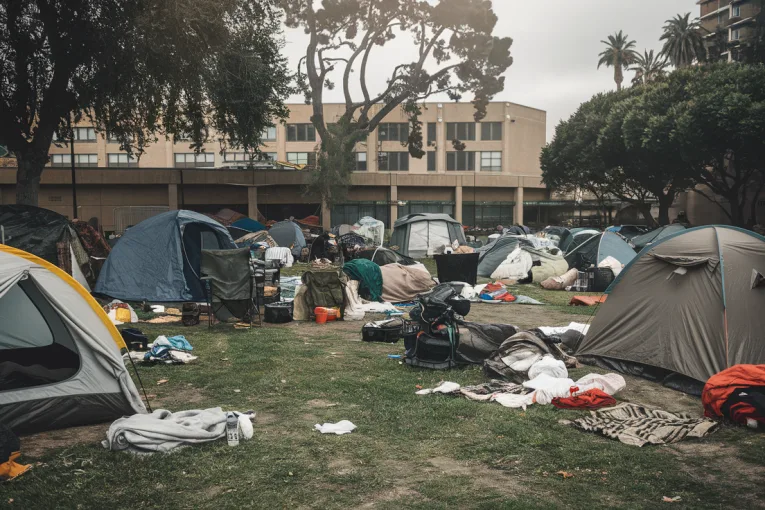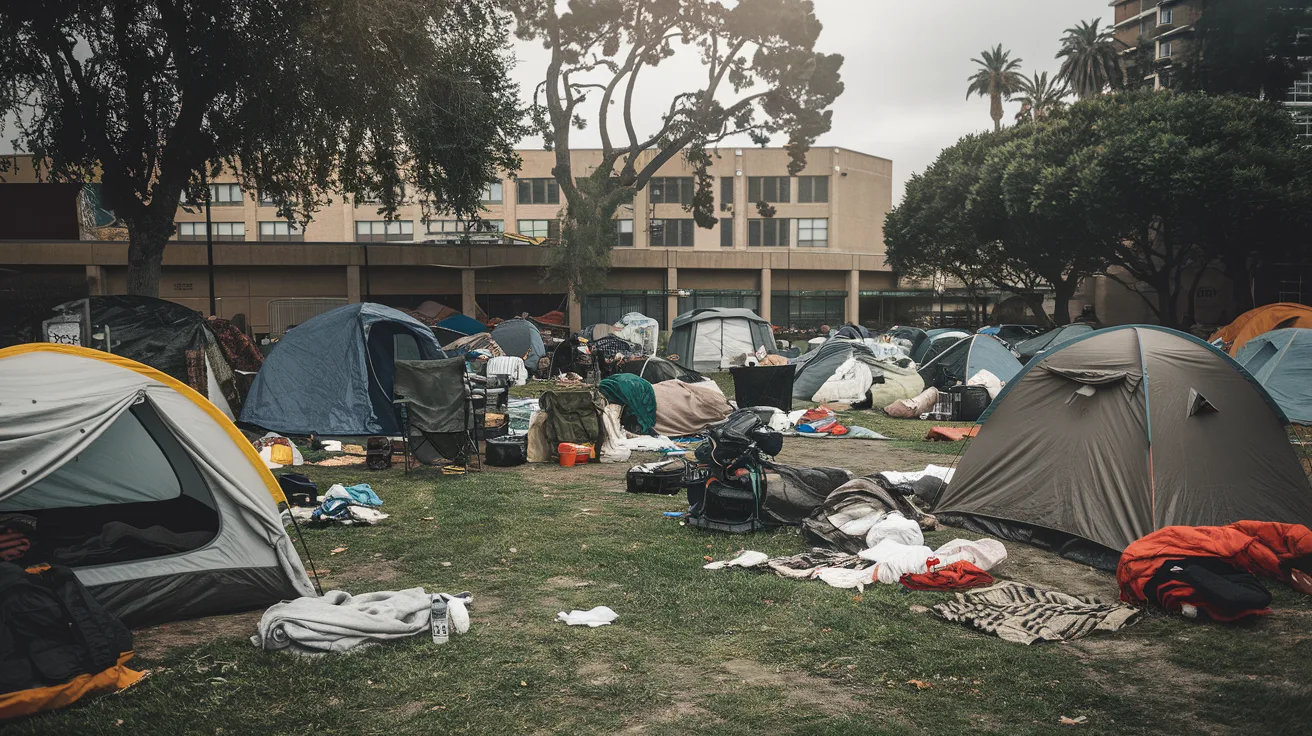
Key points:
- Trump administration’s executive order on homelessness may harm mental health care.
- Order prioritizes law enforcement and civil commitment over voluntary community-based care.
- The American Psychological Association plans to build a coalition against the order.
The American Psychological Association is warning that a new Trump administration executive order on homelessness could have serious consequences for mental health care, increase criminalization of vulnerable people and roll back decades of progress in evidence-based treatment.
The order, Ending Crime and Disorder on America’s Streets, was issued July 24 and directs sweeping changes in federal policy toward people experiencing homelessness. It calls for the Attorney General to pursue reversal of judicial precedents and termination of judicial consent decrees that limit the civil commitment of unhoused individuals with mental illness.
Under the new policy, federal agencies are instructed to prioritize grants to states and municipalities that enforce bans on urban camping, loitering and open drug use. The order also requires the adoption of “maximally flexible civil commitment standards,” which would lower the legal thresholds for when a person can be involuntarily committed to institutional treatment if deemed unable to care for themselves.
The order eliminates federal support for Housing First programs, which provide immediate housing without preconditions such as sobriety or treatment compliance, despite extensive research showing their effectiveness. Federal agencies are also directed to end funding for harm reduction initiatives, including safe consumption sites, while expanding support for drug courts and assisted outpatient treatment programs. The executive order further mandates enhanced data collection on unhoused individuals receiving assistance and allows for information-sharing with law enforcement in certain circumstances permitted by law.
In a striking departure from community-based models that have long been the standard of care, the order urges “shifting homeless individuals into long-term institutional settings for humane treatment through the appropriate use of civil commitment.”
The American Psychological Association said this emphasis on institutionalization over voluntary community-based care “conflicts with fundamental principles of psychological practice, including respect for patient autonomy, informed consent, and the least restrictive treatment environment.” The organization warned that mandatory data sharing with law enforcement “may compromise the therapeutic relationship and confidentiality protections that are essential for effective mental health treatment.”
The APA said the termination of Housing First contradicts “extensive research demonstrating their effectiveness in reducing homelessness and improving mental health outcomes.”
Citing studies by Aubry et al., Onapa et al., Padgett and Tsemberis et al., the organization noted that stable housing is often a necessary foundation for successful engagement in mental health and substance use treatment.
By requiring treatment compliance before providing housing assistance, the order “may create barriers that prevent individuals from accessing both housing and mental health services when they are most needed.”
The association also expressed concern that the policy’s focus on law enforcement and civil commitment could “further criminalize mental illness and substance use disorders, potentially increasing trauma and reducing trust in the mental health care system.”
APA officials said the order ignores “upstream services” that include prevention and early intervention programs designed to connect individuals with treatment before they reach crisis points or come into contact with police.
The APA warned of disproportionate impacts on marginalized populations, particularly veterans, who make up nearly 13 percent of the adult unhoused population according to the National Coalition for Homeless Veterans.
Estimates indicate that one in 10 U.S. veterans has experienced homelessness. People of color, already overrepresented among unhoused populations, are also more likely to face involuntary commitment, raising concerns about systemic inequities.
The association stressed that “effective treatment of mental health and substance use disorders requires voluntary engagement, stable housing, and therapeutic relationships built on trust and collaboration.” It urged continued federal investment in Housing First programs, community-based mental health services and harm reduction approaches that respect individual autonomy.
APA cited research showing that involuntary commitment for substance use disorders is linked to high relapse rates and increased emergency department visits. Studies have found that coercion, lack of autonomy and limited access to evidence-based treatment are major ethical and practical problems.
Black and multiracial individuals are more likely to be involuntarily committed than white individuals, even after adjusting for other factors. The organization said these disparities could worsen if civil commitment is expanded in homeless populations.
Evidence also shows that harm reduction strategies — which include prevention, risk reduction and health promotion — can improve long-term housing stability, physical and mental health, and quality of life for people experiencing homelessness. Economic analyses have found that investing in stable housing for unhoused individuals who use opioids, without requiring treatment, can be cost-effective, reduce deaths and improve health outcomes.
Conversely, APA noted that criminalization of homelessness and mental illness has been shown to worsen housing, health care and employment outcomes, while imposing high costs on cities. A 2016 San Francisco budget analysis found that $20.6 million spent on law enforcement measures against homelessness had limited impact on the problem.
The APA said it will continue to “vigorously oppose policies that criminalize homelessness and mental illness” and will advocate for humane, evidence-based solutions.
The organization plans to engage with federal agencies such as the Departments of Health and Human Services, Justice, and Housing and Urban Development to push for reversal of the policies and restoration of funding for proven programs.
It will also work with state psychological associations, housing advocates, civil rights organizations and other health care associations to build a coalition against the criminalization of homelessness and in support of integrated, community-based models of care.
Categories: Breaking News Homeless State of California Tags: American Psychological Association Civil Commitment Executive Order Harm Reduction homelessness policy Housing First
